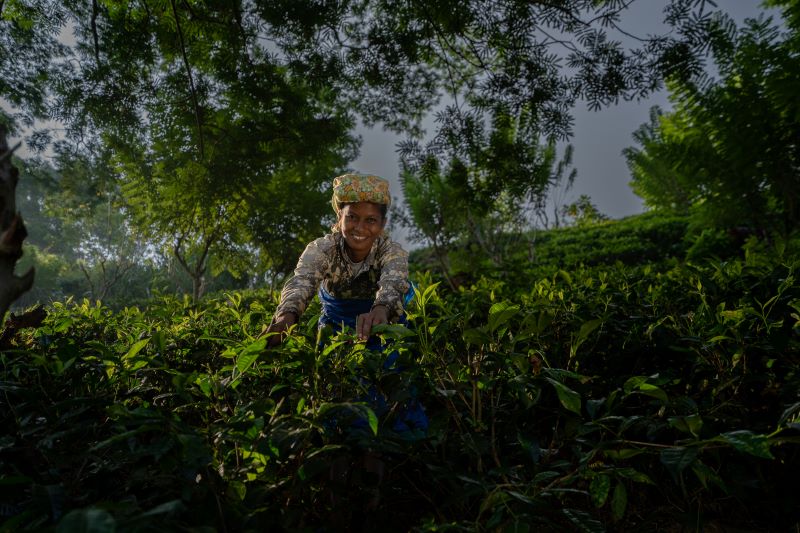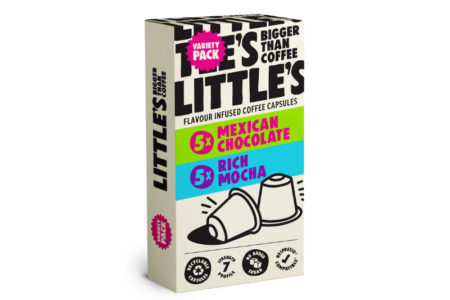Devagiri launches farm-to-table tea brand

Image: Devagiri
UK tea company, Devagiri, has announced the launch of its farm-to-table brand, now available in trade outlets across the country. Devagiri introduces a range of ethical teas featuring blends such as vanilla, cinnamon, cardamom chai, Earl Grey, and breakfast tea, available in both loose leaf and tea bag varieties.
Since 1947, the Devagiri estate has produced teas consumed in the UK, sold through a traditional supply chain with distributor brands squeezing margins and harming the farming community, says the company. In 2022, Roshana Gammampila, granddaughter of founder, Francis Nanayakkara, and her partner Mike Bailey, left their London city lives, raised investment, and bought the estate to turn things around. Their mission: to revolutionise the tea industry by demonstrating that it can be fair and sustainable, without altering the end retail price. Devagiri’s farm-to-table model eliminates the financial and environmental costs of middlemen, ensuring fairer value distribution and unlocking social mobility for tea-producing communities.
Over the past 18 months, Bailey and Gammampila have built relationships and secured partnerships with trade accounts nationwide. Farm-to-table tea represents a new frontier in the UK market, challenging entrenched supply chains with its transparent and traceable approach, and it has been warmly received so far. Bailey shared, “At Devagiri, we’re not just selling tea; we’re sharing a story of sustainability and social responsibility. Visitors to our estate can witness firsthand the journey from leaf to cup, an experience unique to Devagiri.” Rosh added, “We take great pleasure in welcoming customers to Devagiri, so they can see what sets our UK tea brand apart.”
In addition to their efforts in the UK market, Bailey and Gammampila are focusing on immediate community welfare initiatives in Sri Lanka. Devagiri channels its profits directly back into the estate and local community. They have implemented a childhood interventions programme aimed at enhancing child development and education, alongside providing direct financial support to families within the community who are in the greatest need. Bailey and Gammampila’s goal is for the farm-to-table model to enable an end to charity and interventions. They aim for tea-producing communities to earn their fair share of the value chain, breaking free from the cycle of social immobility that has trapped them for so long. Devagiri intend to demonstrate the transformative potential of this approach, empowering communities to earn their own livelihoods and achieve sustainable prosperity.
The traditional tea supply chain is deeply unjust, says Devagiri; while producers earn an average of £3 per kg, consumers in a London café pay the same amount for just 2g of tea. Devagiri proposes a farm-to-table model akin the wine industry, aiming to drastically shorten the supply chain and enhance lives.
Numerous case studies highlight a post-colonial legacy where communities have endured generations of poverty. Face high debt, alarming suicide rates, and widespread issues such as alcoholism and low educational attainment.
Gammampila and Bailey are committed to proving that tea producers can escape poverty without changing the retail price, solely by implementing transparent, direct supply chains.
Beyond ethical sourcing, Devagiri meets a market need by offering premium single estate teas at the same price as standard brands. Their commitment to quality and ethical standards ensures consumers can enjoy their tea with confidence, knowing it supports sustainable practices and community well-being.
From the plucking of tea leaves, to the detail that goes into the withering and rolling, to their zero plastics policy and biodegradable teabags and recyclable packaging, Devagiri manages every step of the process to uphold the highest standards of quality and ethics. Their farm-to-table approach guarantees that consumers can enjoy their tea with confidence, knowing it has been produced responsibly and sustainably.


